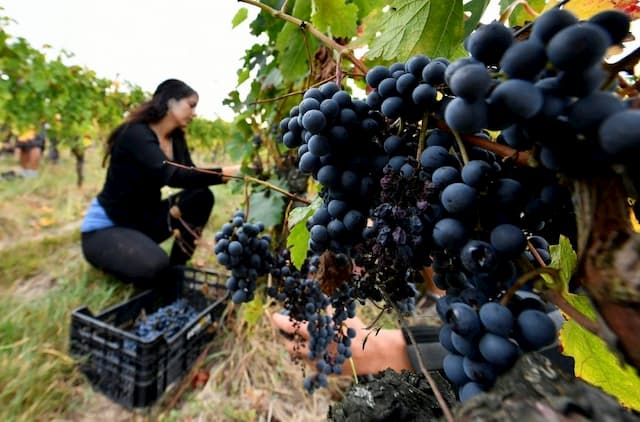French Organic Agriculture had a Record Year in 2018

Organic agricultural production recorded a record year in France in 2018, especially in cereals. 10% of farmers are now working in organic farming in the country.
Organic agricultural production registered a “record year” in France in 2018, especially in cereals, with a rise to 7.5% of the organic agricultural area, while 10% of farmers are now working in organic farming in the country. announced Tuesday the Bio Agency.
With two million hectares grown in organic farming last year in France, there is really a “cape crossed” on the production side, “in line with the objective of reaching 15% of the agricultural area in bio end 2022”, said Florent Guhl , director of Agence Bio, a public body that monitors the evolution of organic products in France.
In total, “14% of agricultural employment is in the organic sector” added Mr. Guhl, highlighting “a very significant employment effect of organic farms”.
The novelties of 2018 relate mainly to cereals, oilseeds and pulses that are catching up, with a jump of 31% of these organic agricultural land to 513 000 hectares, says the Agency Bio in its annual report.
“In 2013, only 1% of field crops in France were organic, today we are at 4.3%,” said Mr. Guhl.
More storage places
This increase is due in particular to the significant increase in dedicated processing and storage capacities, the opening of silos and mills dedicated to organic wheat, such as that of the Valfrance cooperative near Melun or Soufflet in the Rhône department.
To achieve the official goal of 15% of the total agricultural usable area in bio 2022, the agency estimates that in terms of cereals, France will cultivate 8% of its “field crops” by organic methods.
In the field of pulses, 40% are already organic.
In viticulture too, the leap is very important (+ 20%), with 12% of French vineyards are organic (94,020 hectares) in 2018. To encourage winemakers to take the plunge, a CAB label (organic farming conversion) was created to cover the three-year conversion period.
The logo allows the winemaker to explain to the consumer that he is engaged in the organic process, and thus sell his wine a little more expensive than non-organic wine during the transition.
“14,000 new hectares of vines will be in organic conversion next year”
He also highlighted the “great success” of organic fruits and vegetables, encouraged by the objective stated in the Food Law (Egalim) to achieve 20% of organic products or conversion in catering by 2022.
Enjoyed this? Get the week’s top France stories
One email every Sunday. Unsubscribe anytime.


